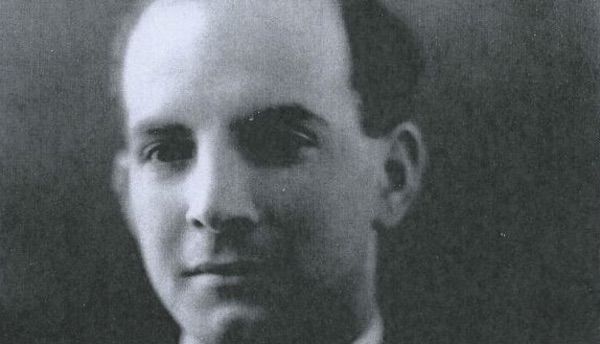
The PSNI police in the north of Ireland has refused to release a report on policing reform in the 1970s written by a British intelligence officer with openly racist views.
The PSNI (formerly RUC) has refused to disclose the document, arguing that the report by a top MI5 man was exempt from freedom of information laws because it related to a “security body”. It has refused to comment on the matter.
John Morton (pictured) spent decades as a colonial policeman in India before being transferred to Ireland. After several promotions, John Morton became a director at MI5 and held various positions inside the British government. He died in 1985.
He wrote in his memoirs that, over time, “it dawned upon me, and became deeply ingrained, that the British were the rulers of India and that the Indians were a sort of immature, backward and needy people whom it was the natural British function to govern and administer.
“Correspondingly, it also seemed the natural place of the Indians to serve their masters, the Sahibs, and show deference and respect towards them.”
Morton continued: “It was inspiring to realise that I was born into this splendid heritage and that to be British was to be a superior sort of person.”
Some declassified British files indicate Morton’s report considered how to enhance the intelligence capabilities of the RUC. The RUC Special Branch were behind numerous atrocities during the mid-1970s in collusion with loyalist groups.
Files show that the RUC had proposed “a comprehensive system of collation and speedy dissemination of information, together with protection of special branch intelligence and sources”.
This formed the framework for loyalist/RUC collusion, and Morton’s report set out proposals to implement this.
Queen’s University Belfast legal scholar Kevin Hearty criticised the PSNI’s decision to conceal the report revealing Morton’s role in policing in the north of Ireland.
“This is not a security issue by any stretch of the imagination, it’s about saving face over what is likely to be another damaging revelation about the RUC special branch.
“The PSNI should facilitate a proper and informed discussion of the ethos, culture and the directives that RUC special branch worked under by releasing this report,” he said.
In the mid-1970s, British officials planned to reduce the size of the British army in Ireland and hand over some of its duties, like covert surveillance, to the then RUC police. The policy was known as ‘police primacy’.
Dr Hearty said: “If Special Branch were working to police primacy policies devised by a racist, it would add further strain to their fragile reputation.”
Morton’s counter-insurgency advice was not just limited to the conflict in Ireland He went to Sri Lanka in 1979 where he has also been linked to atrocities by state forces there, and worked in India before partition.
In 1944 Morton was in charge of Lahore District. While raiding an Indian independence activist’s house in Amritsar, he found literature about Michael Collins and Sinn Fein, a discovery which apparently fired his interest in political suppression.
“The Irish connection and the wider ramifications of the revolutionary movement made a deep impression on me at the time”, he said. “My interest in Special Branch matters now quickened.”
![[Irish Republican News]](https://republican-news.org/graphics/title_gifs/rn.gif)
![[Irish Republican News]](https://republican-news.org/graphics/title_gifs/harp.gif)

